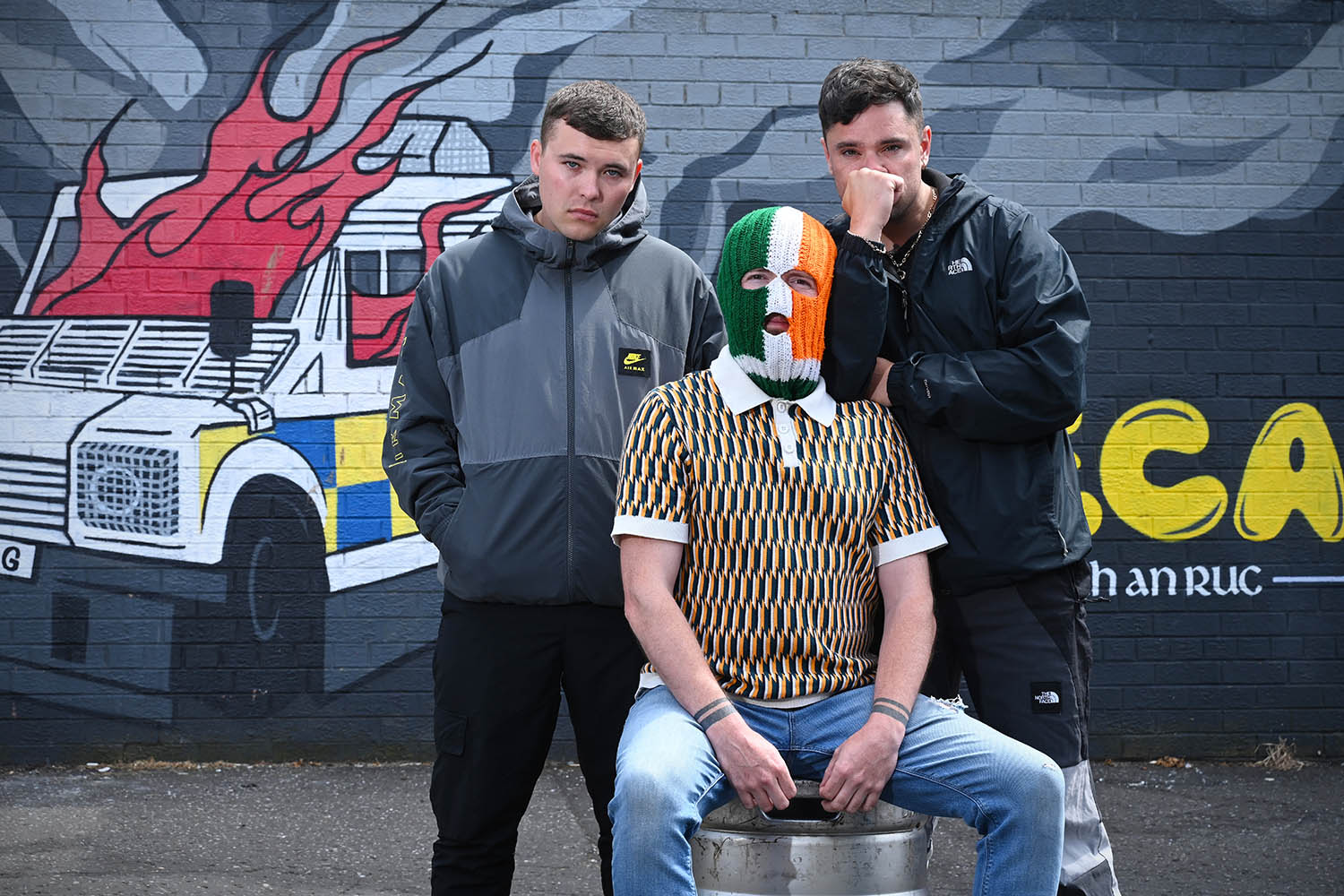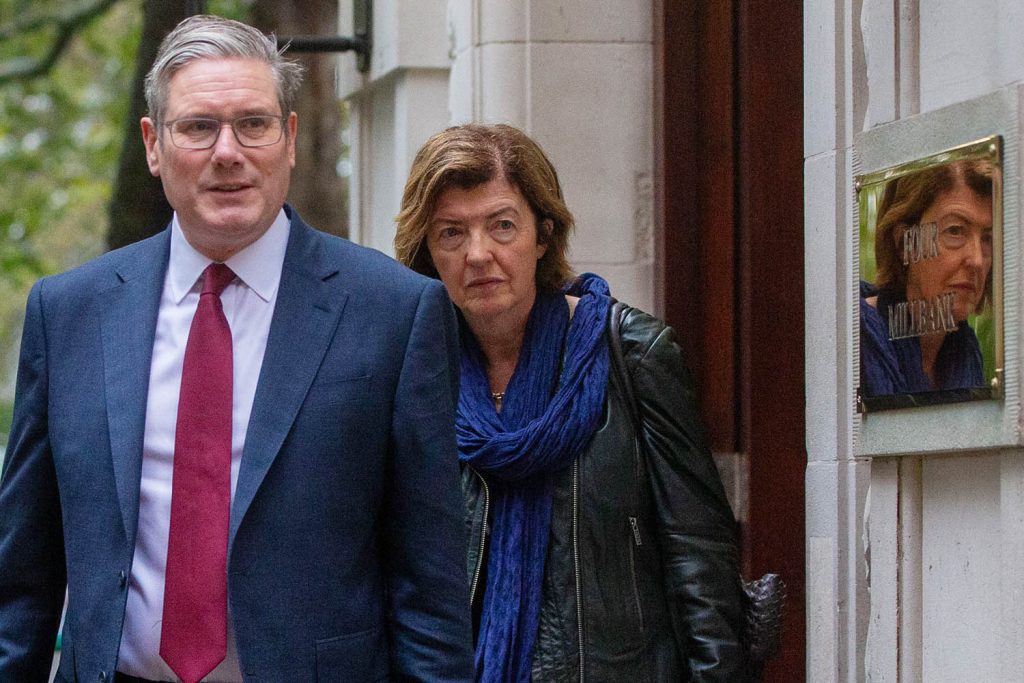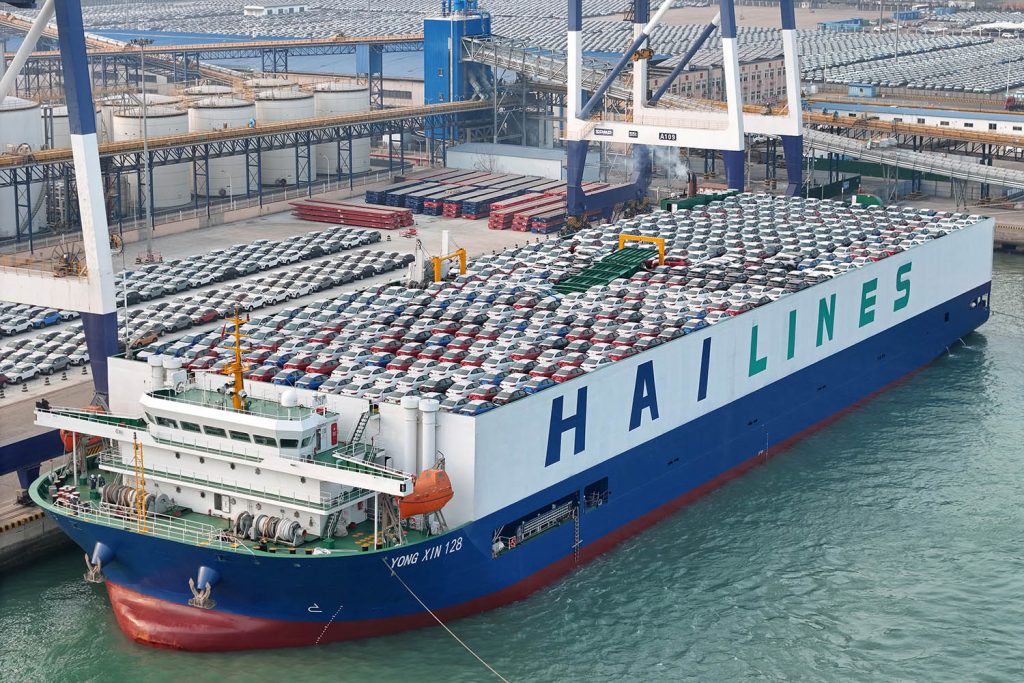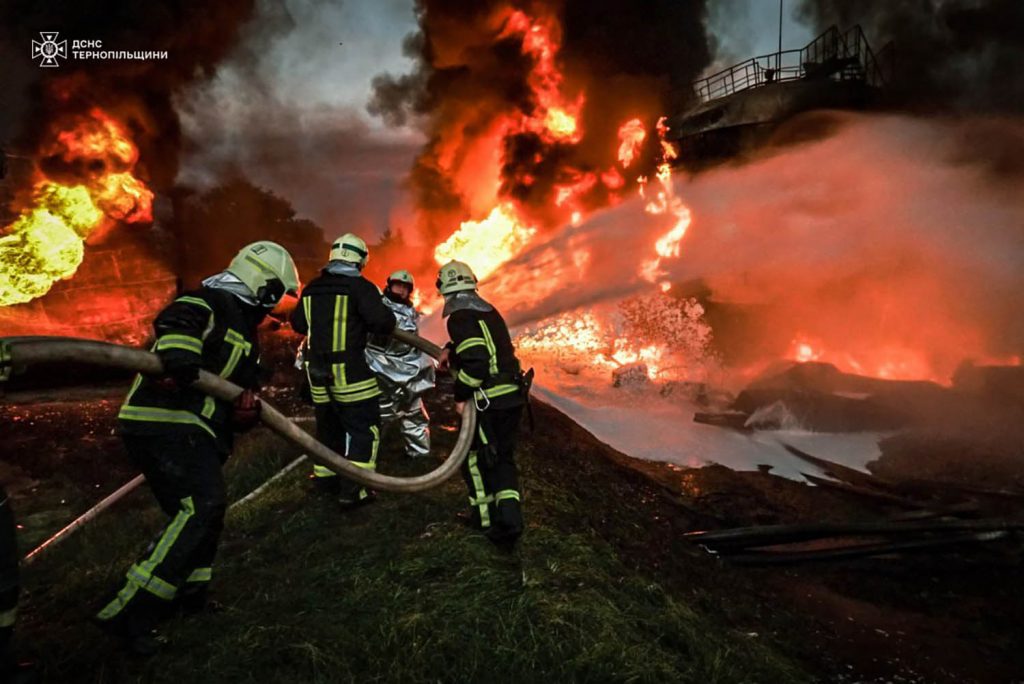
The balaclava-wearing, Irish-speaking rappers have courted controversy, but their message matters
Three Irish-language rappers who make up the group known as Kneecap have a film of the same name opening in UK cinemas tomorrow.
So what? Kneecap is about more than rap and film. Its members are breaking decades of taboos inherited from Ireland’s Troubles, attracting and repelling people of all political beliefs. They’re also suing the British government.
Sectarian or satire? Sometimes it’s hard to tell.
- The band’s name is derived from a barbaric paramilitary punishment.
- It’s been accused of glamourising republicanism and glorifying drug use.
- One member wears a balaclava because he was once a teacher who wanted to hide his identity from his students. In the film – a biopic – he notes how the face covering makes him look like a member of the Provisional IRA. Thus his stage name, DJ Provaí.
- In recent years Kneecap has unveiled murals of a burning police van and another reading “England get out of Ireland”.
So what’s with the dissident iconography? All Kneecap’s members are Irish-speaking ceasefire babies (people who were children or were born around the Good Friday Agreement in 1998). The potency of republican iconography has evolved as the ceasefire generation has come of age, says Una Mullally, a journalist who has covered Kneecap’s rise.
Armalites and ploughshares. Mullally says the fact the group is able to subvert a visual language previously seen as deadly is actually a sign of progress.
- The band’s members reject claims they are anti-British (they have a song called Get Your Brits Out but it’s about going clubbing with the unionist DUP), and say they have family and friends who identify as British.
- It’s the British government they don’t like, and which they’re currently suing in a row over a £15,000 grant awarded by the British Phonographic Industry but vetoed by the former Conservative business secretary Kemi Badenoch.
- They speak and perform in Irish, which is seen by some as a progressive political statement.
Why political?
- Stormont collapsed in 2017 over the DUP’s handling of a botched green energy scheme.
- Sinn Féin said it wouldn’t resume power-sharing until an Irish Language Act was brought in that gave the language official status.
- But the DUP (Democratic Unionist Party) argued the language had been weaponised to undermine “the British way of life” enjoyed by unionists.
- Eventually a deal was struck in 2020 which included provisions to support the language.
First rights. In 2017, the band member who now goes by Móglaí Bap and a friend spray-painted the word “cearta” (the Irish word for rights) on a bus stop in Belfast. Móglaí Bap got away, but his friend was picked up by the police. He refused to speak English and subsequently spent the night in jail.
Kneecap’s first song, Cearta, was released soon after. It was followed by the debut album 3CAG.
Vocab. 3CAG stands for “trí chonsan agus guta”, the Irish for three consonants and a vowel – aka the party drug MDMA. You won’t find that translation in a textbook.
Almost two million people in Ireland (around 36 per cent) have some ability in the Irish language, according to the latest census. That’s an increase of six per cent on 2016. But only one in ten say they can speak it well, and just 72,000 use it daily.
These numbers are much smaller in Northern Ireland, where 12 per cent of the population have some Irish. Almost four times as many people speak Polish as their first language.
What’s more… Kneecap weren’t consciously trying to revive Irish by rapping in Irish. It’s simply their first language, and an important part of their identity. Mullally says there seems to be a yearning for a connection to Irish identity “that isn’t underpinned by colonialism, Catholicism, or capitalism”. And the language, after all, belongs to everyone.












